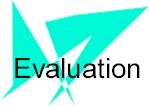





 A website created for families
who want to know more about the assessment process!
A website created for families
who want to know more about the assessment process!
|
|
|
FREQUENTLY ASKED QUESTIONS (FAQ’s)
What are your rights, as a parent, in the special education process? The achievements gained under the Education for the Handicapped Act (Public Law 94–142) and the Individuals with Disabilities Education Act (IDEA) (Public Law 101–476) were clearly strengthened by the IDEA Amendments of 1997 (Public Law 105–17). A fundamental provision of these special education laws is the right of parents to participate in the educational decision-making process. Parents of children with disabilities have a vital role to play in the education of their children. This fact is guaranteed by federal legislation that specifies the right of parents to participate in the educational decision-making process. As your child progresses through educational systems, you should know about and follow through on your rights and responsibilities to ensure that you are a contributing partner with the professionals who will influence your child's future. What are your responsibilities, as a parent, in the special education process?Parental responsibilities can vary depending on factors such as the child's disabling condition. As a result, parental responsibilities are less clearly defined than are parental rights. As a parent of a child with a disability, what can you offer to the IEP or the IFSP process? Parents provide invaluable information about their own and their child’s preferences, expectations, strengths and needs. Parents of children with disabilities should be involved in the process as much as they want to be and as much as they can be. What is advocacy and how do parents advocate for their child? Advocacy is a strategy for taking action and consists of presenting, supporting or defending a position. Furthermore, when barriers are identified that are blocking you or your child from what is wanted and needed you may choose to be an advocate by taking action in order to eliminate those barriers thus producing a more empowering educational context. Advocacy can occur at the federal/national, state, regional and/or local levels. Click on the following links to explore helpful web-sites that are dedicated to advocacy issues. What is "people- first" language? Many educators use "people-first" language. For example, instead of using phrases such as "the retarded" or "retarded children," most prefer "students with mental retardation." People-first language is not used because it seems politically correct or to shy away from or deny a disability. Rather, it is used to emphasize that the disability does not supersede every other characteristic that a person may have. The disability does not define the entire individual. Instead, it only describes one aspect of the individual. Will my child be labeled? Many individuals have argued that research on the harmful effects of labels is not definitive. For some students, the benefit of identifying them to receive services and additional instructional support does outweigh the harm of the label. Furthermore, some special educators are developing new classification systems that emphasize students’ instructional needs so teachers can provide them with an appropriate education while minimizing negative consequences. What resources are available to help parents and where can we go for more information? Many organizations have information to help guide parents through the special education process. Your local school district's director of special education and his or her staff can help you obtain such information and can guide you through the process. Further resources are available from national organizations. Some of them have state and local chapters that can provide more locally based support. In addition, all states now have federally supported parent information and training centers. Click on the following web-sites to explore several resources available to families of children with disabilities.
|
|
|
Home | Background|
Pre-K | Elementary | Secondary
| Post-Secondary
|